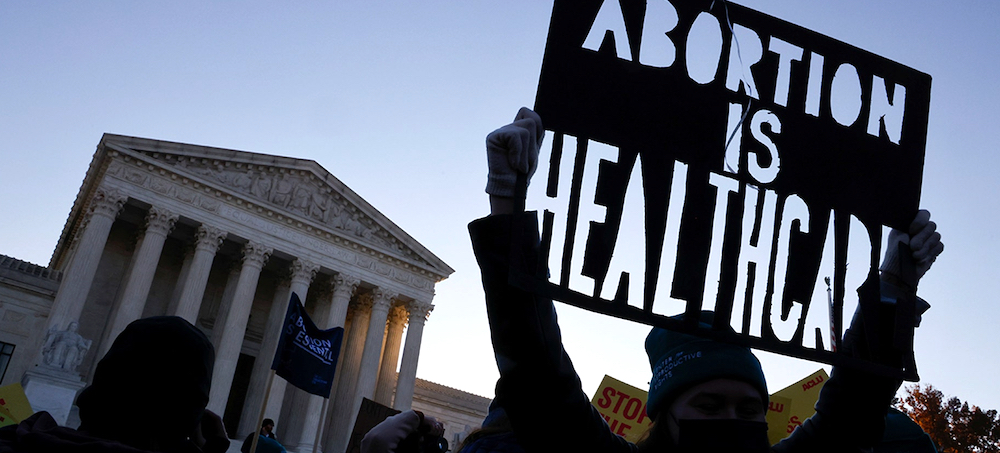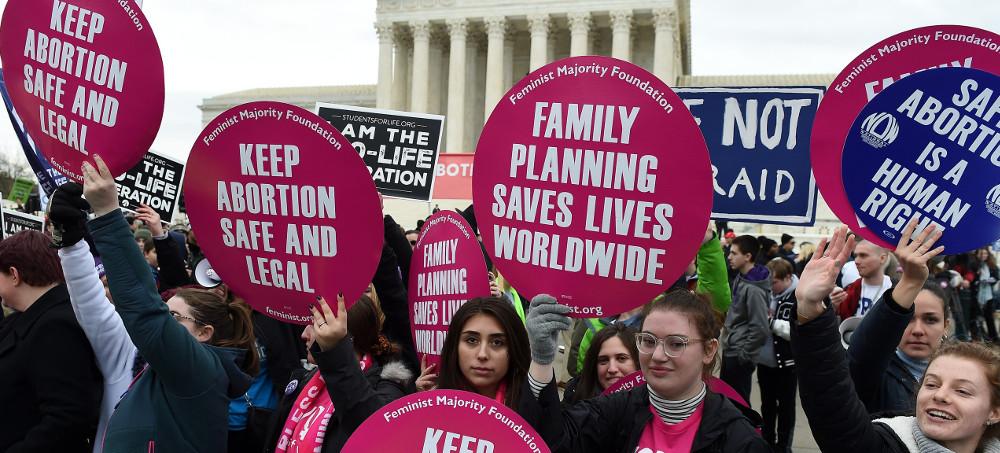Live on the homepage now!
Reader Supported News
In allowing Texas’s outrageous abortion ban to stay in place, the court signaled that it is willing to sacrifice its own legitimacy and power in order to destroy Roe
For providers, it seems that the best possible outcome for the suit now is that they may be able to secure an injunction preventing medical providers from being delicensed. These perplexing limits placed by the court on which parties can be sued to challenge SB8 ensures that though the suit against the law will be at least partly allowed to go forward, it will be largely toothless.
In the meantime, SB8 will remain law. Women in Texas are effectively banned from securing a legal abortion in the state, even though the still-standing Roe v Wade decision says that they have a right to one. It’s likely that SB8 will remain in effect at least for the duration of Roe’s lifetime – meaning that Texas women will not be able to obtain legal abortions after six weeks for the foreseeable future. Many of the initial media responses to the court’s opinion emphasized that since the suit was allowed to go forward, on technical grounds, the ruling was a narrow win for the abortion providers. But in reality Friday was a massive win for the rightwing Texas government, and for anti-choice forces nationwide.
That SB8 has been allowed to take effect – now for the second time – by the supreme court reflects the justices’ eagerness to gut abortion rights. The fact of the matter is that the court is already set to overturn Roe and allow states to ban abortion outright. That much was clear to anyone who listened to last week’s oral arguments in Dobbs v Jackson Women’s Health, a case surrounding the constitutionality of a 15-week ban in Mississippi, which devolved into grim misogynist spectacle as the Republican appointees held court on the supposed ease of giving infants up for adoption and their own robust comfort with overturning long-settled precedent.
That ruling is scheduled to come down in late May or early June. When it does, a slim majority of states are expected to ban abortion, either immediately or very soon thereafter. That means that soon SB8 – and the copycat bills that it has inspired in states like Florida and Arkansas – won’t be necessary for the anti-choice lobby to achieve their aims. Instead of concocting an elaborate enforcement process in which rogue anti-woman vigilantes enforce their abortion bans, the states will be able to enforce their bans themselves.
SB8, then, and the supreme court’s embrace of it, can be understood not only as a harbinger of the justices’ deep contempt for the abortion right, but also of their childish impatience to exert this contempt upon American women. They can’t even wait six months. They want to ban abortion right now. In pursuit of this goal, the supreme court has proven itself willing to undermine its own capacity to oversee state laws, to enforce federal supremacy, and to protect constitutional rights.
The anti-choice substance of the court’s decision in SB8 was not surprising; its embrace of Texas’s tactics perhaps was. Aside from its direct attempt to undermine women’s rights, SB8 also took aim at judicial authority. By banning abortion long before viability, the law flouted the supreme court’s precedents in Roe and Planned Parenthood v Casey. But that much a slew of vehemently anti-choice justices would probably forgive: all six of the Republican appointees clearly believe that Roe was wrongly decided, and at least five of them (all but Roberts, who seems more trepidatious) appear eager to overturn it. But in its novel enforcement mechanism, SB8 sought specifically to evade judicial review – not just to give the court an opportunity to overturn its own precedent, but to make it so that within Texas borders supreme court precedent didn’t matter.
In her dissent, Justice Sonia Sotomayor compared SB8 to the views of John C Calhoun – a nineteenth-century pro-slavery campaigner who argued that states have the right to nullify federal laws that they do not like. America fought its civil war in no small part over this question. By first allowing the SB8 to go into effect, in September, and then by gutting the lawsuit against it this Friday, the supreme court has, shockingly, endorsed a scheme to undermine its own power, and granted a state the ability to evade federal precedent. Nullification, it seems, is back in style.
For years, court watchers have wondered whether the justices’ institutionalist instincts would overcome their misogynist ones: if the Court had to choose between maintaining its own power and legitimacy, and overturning Roe, which would it choose? Now, it seems, we have our answer.
Follow us on facebook and twitter!
PO Box 2043 / Citrus Heights, CA 95611






